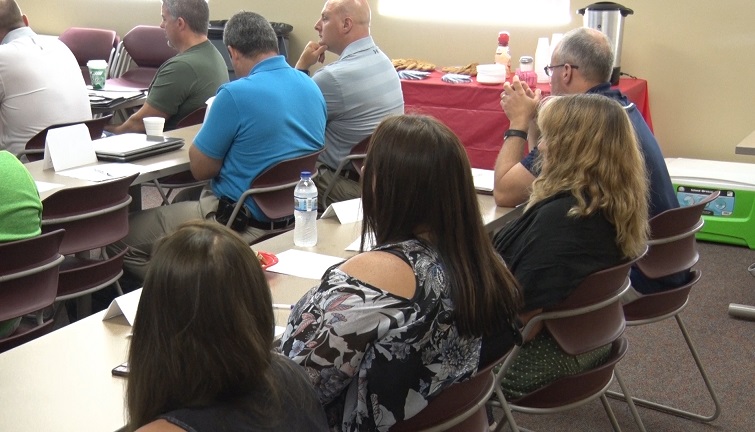Handling and investigating sexual assault cases

IRON MOUNTAIN — Officers from the Upper Peninsula and Wisconsin are taking part in a two-day training session at Bay College West focused on helping them to better understand the dynamics when it comes to handing and investigating sexual assault cases.
“What a victim of sexual assault goes through is horrendous,” said Cheryl O’Neil, executive director of Caring House. “They feel ashamed that they allowed this to happen to themselves, even though it’s never their fault. They still take the blame and the shame.”
Part of the training administered by representatives from the Michigan Commission on Law Enforcement Standards (MCOLES) is the neurobiology of trauma and what it can do to victims of sexual assault.
“Trauma impacts the brain and it impacts the way memories are stored,” said Shari Murgittroyd, a representative for the Michigan Domestic and Sexual Violence Treatment Board and MCOLES. “In the past we have trained law enforcement to ask sequential questions, to ask for a timeline. Now we’re learning if you just ask them to tell the story about what happened, just let them open up and free flow the information, that can be helpful,” she added.
Sexual assault cases are very sensitive, especially for the victim. And getting victims to open up about what happened can be difficult for officers.
“It’s just not easy to deal with,” said Officer Matt Brouillette of Kingsford Public Safety, who is one of approximately 30 officers taking part in the training session. “It’s a very long process for the victim to go through. It could be days or weeks of endless hours of investigation.”
“A lot of victims will not report; only about 20% report to law enforcement after a sexual assault,” said Murgittroyd.
The Caring House, a domestic violence and sexual assault center in Iron Mountain, had 250 sexual assault instances in Dickinson County reported to them last year. And those are just the ones that were reported.
“Most perpetrators rape someone in their social circle or someone they work with because those rapes are less likely to be reported,” said Murgittroyd.
Suspect interrogation techniques and understanding how perpetrators use power and control to make their victims feel vulnerable are among the other topics that will be covered during the training session.
